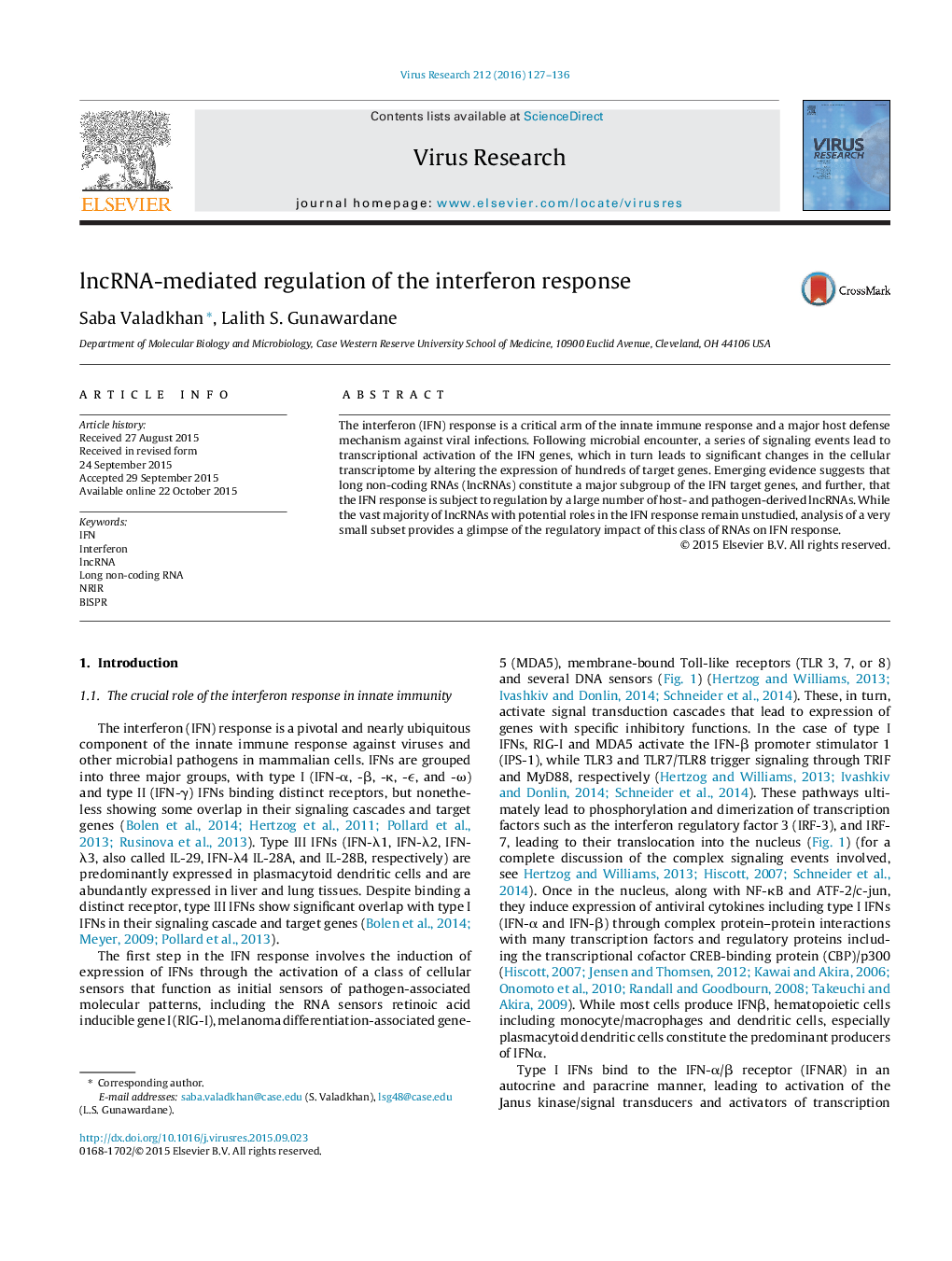| Article ID | Journal | Published Year | Pages | File Type |
|---|---|---|---|---|
| 3428101 | Virus Research | 2016 | 10 Pages |
•A large number of lncRNAs are differentially expressed in response to IFN stimulation.•Two IFN-induced lncRNAs act as negative regulators of the IFN response.•Another IFN-induced lncRNA positively regulates the expression of its neighboring gene, BST2/Tetherin.•Several virally-encoded lncRNAs increase viral pathogenicity by suppressing the IFN response.
The interferon (IFN) response is a critical arm of the innate immune response and a major host defense mechanism against viral infections. Following microbial encounter, a series of signaling events lead to transcriptional activation of the IFN genes, which in turn leads to significant changes in the cellular transcriptome by altering the expression of hundreds of target genes. Emerging evidence suggests that long non-coding RNAs (lncRNAs) constitute a major subgroup of the IFN target genes, and further, that the IFN response is subject to regulation by a large number of host- and pathogen-derived lncRNAs. While the vast majority of lncRNAs with potential roles in the IFN response remain unstudied, analysis of a very small subset provides a glimpse of the regulatory impact of this class of RNAs on IFN response.
